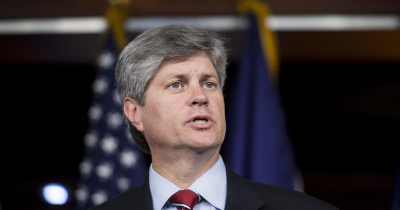
Fiery Interruption: Sriracha Sensation Pauses Production – Unveiling the Reasons Behind
Monday, 13 May 2024

Washington — In a significant move aimed at bolstering global security, President Biden has officially enacted a comprehensive foreign aid package, encompassing vital assistance for Ukraine, Israel, and Taiwan, alongside provisions addressing national security concerns such as the potential ban on TikTok in the U.S. Embracing the momentous occasion, Biden hailed the legislation as a triumph for America, Europe, and global peace during remarks delivered from the White House. He underscored its role in fortifying national security while reaffirming America's commitment to international leadership.
With the ink barely dry, the Pentagon wasted no time in announcing a substantial military aid package worth approximately $1 billion for Ukraine, marking the most substantial deployment of weaponry from Defense Department stocks to the region since January 2023. Biden wasted no time in affirming the immediate commencement of shipments, detailing plans for the provision of essential military equipment ranging from air defense munitions to armored vehicles.
The journey of this pivotal aid package to fruition was not without its hurdles, enduring twists and turns as it navigated through congressional scrutiny and ideological divides. Despite initial skepticism and conservative resistance, the $95 billion aid package garnered resounding bipartisan support, culminating in its passage through both chambers of Congress. Reflecting on the arduous path to enactment, Biden acknowledged the challenges encountered, yet emphasized the indomitable spirit of American resolve in rising to the occasion.
At the heart of the legislation lies a comprehensive allocation of resources: $60.8 billion earmarked for Ukraine's security needs, $26.4 billion designated to bolster Israel's defense capabilities and provide humanitarian relief to Gaza, and $8.1 billion dedicated to supporting allies in the Indo-Pacific region. Additionally, the bill incorporates measures targeting Russian oligarchs, allowing for the sale of their frozen assets, while also introducing provisions that could precipitate the ban of TikTok unless divested within a year.
As the dust settles on this landmark legislative achievement, the enactment of the foreign aid package stands as a testament to America's enduring commitment to global stability and security, underscoring the nation's unwavering resolve to confront emergent threats and uphold its leadership role on the world stage.
Despite initial contention from congressional Republicans regarding aid to Ukraine without addressing domestic border security concerns, bipartisan support eventually coalesced in both chambers to approve the assistance devoid of immigration provisions. A group of senators from across the aisle had diligently negotiated border security reforms to accompany the aid over several months. However, the agreement disintegrated following former President Donald Trump's urging of GOP lawmakers to reject the deal.
Subsequently, with the aid package lacking border security components, the Senate proceeded to pass it independently. Nevertheless, House Representative Johnson impeded the bill's progression in the lower chamber, opting for an alternative route. President Biden acknowledged the absence of border security measures in the bipartisan agreement, expressing regret that they were not included while vowing to address the issue for the American populace.
Ultimately, the aid package, initially passed by the House in separate bills, closely mirrored what the Senate had previously approved, albeit with adjustments aimed at garnering Republican support. These adjustments included structuring a portion of the Ukraine aid as a loan and permitting the sale of frozen assets belonging to Russian oligarchs.
Describing the occasion as historic, President Biden emphasized America's solidarity with allies and its staunch stance against dictatorial regimes, particularly that of Vladimir Putin. The inclusion of a provision regarding TikTok in the foreign aid package emerged late in the legislative process, subsequent to the House's prior approval of a standalone bill targeting the popular video-sharing app owned by a China-based company. Concerns over potential Chinese government access to user data prompted this move, with the final provision mandating the sale of TikTok within a year, extending beyond the upcoming election.
Despite opposition from segments of the younger demographic and lobbying efforts by TikTok, resistance to the provision waned, ultimately facilitating its inclusion. Reporting by Eleanor Watson and contributions from politics reporter Kaia Hubbard from CBS News Digital in Washington, D.C., enriched the understanding of this multifaceted legislative development.
In conclusion, the journey of the foreign aid package, marked by intricate negotiations and ideological clashes, underscores the complex interplay of national security, diplomatic relations, and domestic policy priorities. While the absence of border security measures disappointed some, the bipartisan effort to support Ukraine and address emerging threats demonstrates America's commitment to global stability.
President Biden's resolute words affirm America's steadfastness in standing with allies and confronting authoritarian regimes, signaling a clear departure from past approaches. The inclusion of the TikTok provision reflects growing concerns over data security and foreign influence, highlighting the evolving landscape of technological diplomacy.
As the aid package takes effect, its impact will extend far beyond monetary figures, shaping geopolitical dynamics and safeguarding democratic principles. With contributions from dedicated reporters and the collective efforts of policymakers, this legislative milestone serves as a testament to the enduring strength of American democracy and its role in shaping a safer, more prosperous world.




